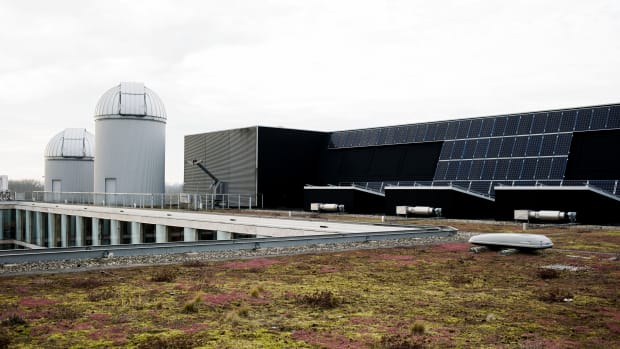
UvA to reduce ecological footprint by 25% in 5 years
The University of Amsterdam wants to reduce its ecological footprint by 25% by 2026, and for all its buildings to be fossil-fuel free by 2040, according to a paper published by the university.
The white paper on sutainability lays out the university’s vision to reduce its ecological footprint and to ‘accelerate sustainable change in society’. It includes generating its own energy, making more sustainable choices concerning purchases and catering, and less air travel.
Solar
The university wants to generate 10% of its own energy by 2026 and will install solar panels on all suitable roofs. It is also looking into placing solar panels on vacant lots and using the residual heat from data centres at Science Park.
Catering
Students and employees will soon notice the new sustainability policy in university canteens. By next year, the ecological footprint left by the university catering services should be halved compared to numbers in 2018. By 2026, CO2 emissions from food sold in canteens should have fallen by one quarter.
To achieve this, the supply of meat and dairy must be curtailed, according to the paper. ‘For example, a 75 to 100 per cent vegan lunch and / or scrapping meat products. The university will negotiate with Caterer Cirfood about ‘scrapping meat products and reducing the sale of products with animal proteins’.
Air travel
There is also talk of a ‘central business travel policy’. In recent years, several UvA students have argued that it is not sustainable policy to reimburse air travel to locations that can be reached by public transport within six hours. The student council supports this view.
An appendix to the plan states that trips are only to be booked ‘after approval by a manager’. For air travel to locations that can be reached by public transport within eight hours, train travel is ‘the preferred option’.
ICT
Change is also expected at the ICT department. For example, the paper describes how the department must purchase Fairphones or refurbished equipment, must slow down the growth of data traffic, and that all e-waste must be collected and disposed of in a sustainable manner by 2026. ICT equipment must also be used for a longer period than it is currently.
Fossil-free
Over the next two decades, all UvA campuses will become fossil-fuel free, says the university. The Science Park campus is projected to no longer run on gas by 2025, followed by the Roeterseiland Campus in 2030. The University Quarter, currently under construction, should be gas-free ten years later.


